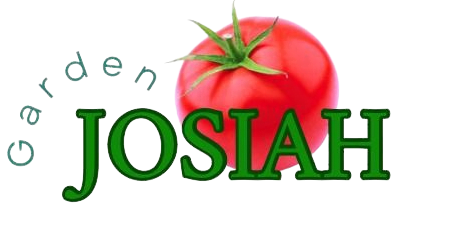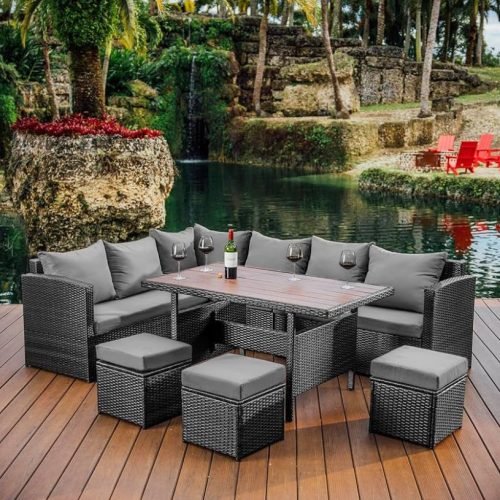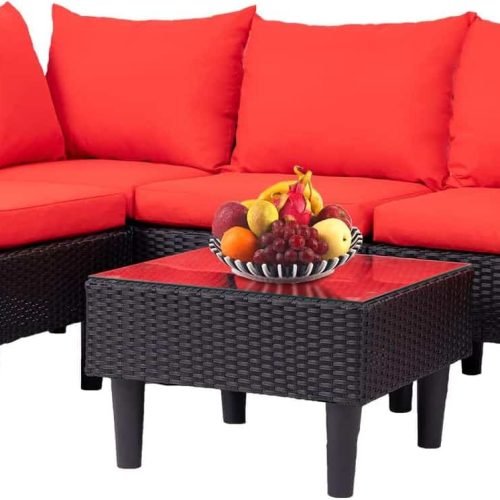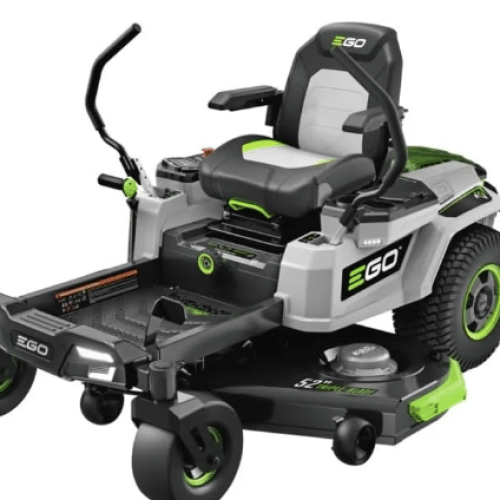Should I Mulch My Vegetable Garden
Hey fam it’s J. V. Charles with ya! Standing in my vegetable garden, I see bright green plants and pretty flowers. It makes me proud. Gardening is my peaceful place and a way to feel close to nature. But there are always hurdles to jump, and mulching helps with many of them.
Mulching my vegetable garden has made a big difference. It keeps the soil moist, stops weeds, and controls soil temperature. This means fewer diseases too. Mulch is amazing for many reasons.
You can choose organic mulch, like leaves or wood chips. Or go for a synthetic option, such as landscaping fabric. The best mulch benefits show in a beautiful vegetable garden. So, yes, you should definitely mulch yours!
Understanding the Benefits of Mulching Vegetable Gardens
Being a keen gardener, I’ve seen how mulch greatly helps my vegetable garden. It keeps the soil moist, stops weeds, and helps control temperature. Plus, it keeps diseases away, making my plants healthier.
Conserving Soil Moisture
Mulch is great at stopping water from evaporating. This helps the soil stay moist longer. So, I can water less often, which saves me time and water. It also stops things like blossom end rot in tomatoes.
Reducing Weed Growth
Mulch stops weeds from growing. This saves me a lot of time. With less weeds, my plants have more space to grow. I get to enjoy taking care of my garden more.
Moderating Soil Temperature
Mulch also helps keep the soil not too hot or cold. Dark-colored mulch warms the soil, good for fast plant growth. Light-colored mulches keep the soil cool in summer. This way, my plants get just the right temperature.
Decreasing Disease Problems
Mulch acts as a shield, stopping plant diseases. It keeps the soil from splashing onto plants, protecting them. This helps keep my garden free from sickness, using fewer chemicals.
Natural vs. Synthetic Mulches
Gardeners can pick between natural mulch and synthetic mulch. Each has good and bad points. Organic choices and inorganic options are available.
Natural Mulches
Salt hay, grass clippings, leaves, and paper are types of natural mulches. They make the soil better as they break down. But, they might use up soil nitrogen at first. So, you might need to add more.
- Salt hay is great because it mostly stops weeds.
- Grass clippings can have weed seeds or mold but are easy to get.
- It’s good to break leaves into smaller pieces before using them.
- Paper mulch keeps weeds away well when it’s not too thick.
- Wood chips can take nitrogen from the soil, which vegetable gardens need.
Synthetic Mulches
Synthetic mulches are made of plastic, perforated plastics, landscape fabric, photodegradable mulch, and foil. These last a long time. They don’t give nutrients to the soil. But, they’re good at stopping weeds and keeping the soil moist.
| Mulch Type | Pros | Cons |
|---|---|---|
| Plastic | Durable, effective weed barrier | Can heat up soil excessively |
| Perforated/Porous Plastic | Allows water and air circulation | May require more frequent replacement |
| Landscape Fabric | Long-lasting, permeable | Can be tough to get rid of |
| Photodegradable Mulch | Breaks down over time | Limited lifespan, may leave residue |
| Foil | Reflects sunlight, insulates soil | Can tear easily, challenging to remove |
Picking the best mulch means looking at cost, what’s around, and what you like. You have to think if you want organic or not.
Should I Mulch My Vegetable Garden?
Mulching your vegetable garden is easy and very helpful. Mulch means anything, like wood chips, leaves, or plastic, that covers the soil. It keeps moisture near the plant roots, stops weeds, keeps soil not too hot or cold, and prevents soil from washing away. These are all important for a healthy vegetable garden.
What is Mulch?
Basically, mulch definition is any material spread over the soil. This layer helps keep the soil moist, stops weeds, and keeps the soil just right for plant growth.
Organic Mulch
Organic mulches come from natural things that break down, like wood chips, straw, leaves, or compost. As they break down, they give the soil good stuff, making it ideal for plants.
Inorganic Mulch
On the other hand, inorganic mulches are things like plastic or gravel that don’t break down. Even though they don’t feed the soil, they do help stop weeds and keep the soil damp, which is good for vegetable garden mulching.
Choosing any mulch will help your vegetable garden a lot. It uses less water, doesn’t let many weeds grow, keeps the soil right for plants, and helps the soil get better over time. Mulching is a simple way to make the best place for your crops to grow.
| Mulch Type | Advantages | Disadvantages |
|---|---|---|
| Organic (e.g., wood chips, leaves, straw) |
|
|
| Inorganic (e.g., plastic, landscape fabric) |
|
|
Best Mulches for Vegetable Gardens
For gardeners, picking the right mulch for vegetable gardens is key. It keeps the soil moist. It also stops weeds and keeps the soil a good temperature. This helps your plants grow well. There are many best mulching materials to choose from.
Compost
Compost mulch is full of nutrients. It makes the soil better and helps good bugs live in your garden. Remember, don’t put meat or sick plants in your compost.
Grass Clippings
Grass clipping mulch is cheap and easy to get. Just make sure the grass has not been treated with bad chemicals. This keeps your garden safe.
Black Plastic
Black plastic mulch is not natural, but it’s great for stopping weeds. It keeps the soil moist and warms it up too. This helps your plants grow faster.
Straw
Straw mulch is a simple and low-cost choice. It lasts a long time. This means your garden is protected for a while.
Leaves
Leaf mulch keeps the soil warm and gives it nutrients. It’s good to shred the leaves first for better use.
Pine Needles
Pine needle mulch is great for plants that like acid soil. This includes tomatoes and blueberries. It keeps the right balance for them.
Cocoa Hulls
Cocoa hull mulch is not seen often but is nice to look at. It keeps the ground moist and smells good too.
Mulching Techniques for Vegetable Gardens
In your search for a big and healthy vegetable garden, the right mulching techniques are key. Mulches keep water, stop weeds, and make soil better. This makes a perfect place for your plants to grow strong.
Mulching with Dried Leaves
Leaf mulch is easy and good for the Earth. Use dry leaves from trees like avocado or plum. Shred them to stop clumping, then put them over your beds. This way keeps water, adds nutrients slowly, and helps your soil.
Mulching with Dried Grass Clippings
Grass clipping mulch is another great choice. Make sure the grass is not treated with chemicals. Spread a thin layer on your garden. It helps keep the soil moist, and as it breaks down, it feeds your plants too.
Mulching with Lemongrass
Try something special with lemongrass mulch. It smells nice and keeps some bugs away. As it breaks down, it adds good things to the soil too.
Chop and Drop Mulching
Chop and drop is a smart way to mulch. Cut or mow plant bits and leave them on the ground. This helps soil by adding nutrients and stops weeds too.
Wood Chip Mulch
Wood chip mulch is a common pick for gardens. It holds in moisture and keeps the soil warm. Just use old chips to keep the soil’s nutrients right for your plants.
Mulching with Compost
Using compost mulch is great for the soil. It makes the soil better and helps good bugs live in your garden. But, don’t use compost with meat, greasy food, or sick plant bits.
Factors to Consider When Mulching
When mulching your veggie garden, think about many things for best results. Think about how deep the mulch should be. Also, choose the right type. Understand your soil and local weather too. This all helps your plants in different ways.
Mulch Depth
The right mulch depth is key. Too little can’t protect your plants enough. Too much stops air and water from getting to them. For most mulches like leaves or bark chips, use 2-4 inches. For plastic mulches, use a bit less, 1-2 inches.
Mulch Materials
The kind of mulch matters a lot. Organic mulches add good stuff to the soil but break down. You might need to replace them sometimes. Synthetic mulches last longer but don’t help the soil.
Soil Type
Think about your soil type too. Sandy soils dry out quickly. A thick mulch layer can keep moisture in. Clay soils need a thinner layer to breathe better and avoid too much water.
Climate and Growing Season
The weather and how long you can grow things are also important. In hot places, light mulch can cool the soil. Cooler areas might need dark mulch to keep the ground warm. Adjust your mulch as the seasons change.
Maintaining and Replenishing Mulch
As organic mulches decompose, they will need to be replenished time to time. It’s important to always check the moisture levels. Dry mulch doesn’t keep the soil moist.
Before adding new mulch, lightly rake the old stuff. This helps mix it into the soil. With this, aeration happens too.
Synthetic mulches, like plastic, might tear and need changing yearly or every other year. When planning for your garden, remember to include the cost of new mulch. You can also look for free mulch like arborist wood chips or leaves that have fallen.
Keeping up with mulch helps fight off weeds. It also holds in moisture. This makes it better for your plants to grow strong and healthy.
| Mulch Type | Replenishment Frequency | Cost-Effective Options |
|---|---|---|
| Organic (wood chips, leaves, straw) | Every 6-12 months | Arborist wood chips, fallen leaves |
| Synthetic (plastic) | Annually or bi-annually | Bulk purchases |
Maintaining the right mulch depth and replenishing it regularly is essential for a thriving vegetable garden. Following these tips helps keep weeds away and the soil rich.
Conclusion
Mulching is key for a great, easy garden. It keeps the soil moist, the temps just right, stops weeds, and keeps diseases away. There are many organic and not organic choices. Pick what works best for where you live and what you grow.
Don’t skip mulch. Cover your garden beds yearly. This leads to a big harvest, less water needed, and few weeds and bugs. Mulching saves a lot of work and makes your plants healthy. You’ll be glad you did it.
Choose from things like compost, grass clippings, and straw. Or try black plastic or landscape fabric. Mulching makes a HUGE difference for your garden. Just try it and see the magic in your veggies.
FAQ
What are the benefits of mulching a vegetable garden?
Using mulch in gardens helps a lot. It saves water in the soil, stops weeds, and keeps the soil warm. It also lowers the risk of plant diseases by keeping a barrier between the soil and the plants.
What types of mulches are available?
There are two kinds of mulches: natural and synthetic. Natural mulches can be things like grass clippings, leaves, straw, and compost. Meanwhile, synthetic options include plastic, landscape fabric, and foil.
What is mulch and why should I use it in my vegetable garden?
Mulch is any material you use to cover the soil. It could be wood chips, leaves, or even plastic. Mulch helps by stabilizing soil temperatures, stopping weeds, and keeping moisture near the plants’ roots. This makes it really good for vegetable gardens.
What are some of the best mulches for vegetable gardens?
There are several great mulch types for vegetable gardens. These include compost, grass clippings, black plastic, straw, leaves, pine needles, and cocoa hulls.
How can I mulch using dried leaves or grass clippings?
To use dried leaves as mulch, first shred them after raking. Make sure the grass clippings you use are free from chemicals. Then, spread a thin layer, about 1-2 inches thick, over the soil.
What factors should I consider when mulching?
When deciding how to mulch, think about the depth, material, soil, and climate. For organic mulches, a layer of 2-4 inches is good.
How do I maintain and replenish mulch?
Organic mulches need to be topped up as they break down. Make sure to keep them moist and aerated.
If you’re using synthetics like plastic, change it every year, or every two years if it tears.






